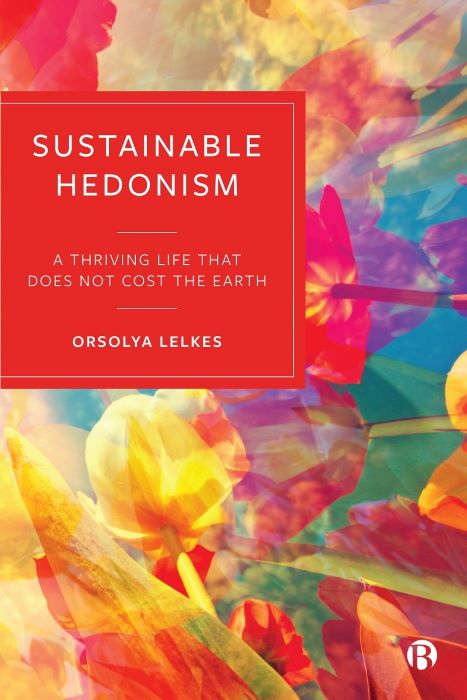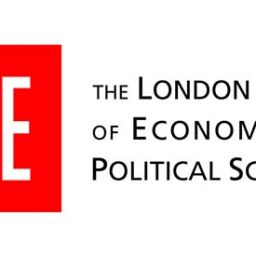Sustainable Hedonism: Not an oxymoron
Originally published on the Behavioural Public Policy Blog of Cambridge University Press, 13th June 2022

Sustainable Hedonism: Strategy for a fair and joyful life
Humanity does not live in a socially just and environmentally safe space: there is no country where basic social safety is achieved and where the use of resources remains under the ecological ceiling if we also take into consideration activities it has outsourced to other countries. We need to converge into a fair consumption space, which implies more consumption for those with unmet basic human needs, and less consumption for those who surpassed the environmental maxima.My primary concern is the latter, from a personal motivational perspective. Why would anybody want to consume less if it is seen as a loss of quality of life, or ultimately, happiness? Why would anyone want to become a minimalist in the world of maximisers?
On the other hand, many of us suffer from climate anxiety and seek the right actions on a daily basis in our lives that does not aggravate the problems, but still within a good life with a sense of growth. A life that is responsible and caring, but also joyful. One may depict it as an inner conflict between our pleasure-seeking, instinctive self and our responsible, social one (in Sigmund Freud’s terms, the ID and the super-ego), seeking a delicate balance every moment, in all life situations. If we fail to do that, we may suffer from addiction, overeating, social stigma or we may cause harm to others with our overconsumption, or at the other extreme we may suffer from repression, psychological distress, and feel a loss of vitality, joy. Harmful indulgence and painful asceticism and are two extremes indicating an imbalance. A middle way characterised by a conscious attitude to pleasure seeking and cultivating happiness leads to a good life.
In my book, “Sustainable Hedonism. A Thriving Life That Does Not Cost the Earth”, I describe a strategy for seeking happiness that does not harm oneself, others or the Earth, and invite the readers to explore these issues in their own lives. It is a normative approach.
A key concept is that of a flourishing life from Aristotle, a normative philosophy that lives its Renaissance today. According to the philosopher, happiness is not simply what we feel, but rather a result of what we do, how we live. Essentially, it is an “activity of the soul” based on conscious action, the persistent practice of virtues, in the context of friendships and community. In other words, one cannot be happy without friends, and one actively contributes to the happiness of others.

“Flourishing life” is a favoured translation of the original Greek phrase of “eudaimonia”, where ‘eu’ means good and ‘daimōn’ means spirit (the ‘movers’ in the celestial spheres who moved the planets). According to Aristotle, there was a perfect order in the cosmos, the celestial spheres, and humans’ purpose was to achieve this perfection within themselves. Eudaimonia or flourishing life has an extended literature in contemporary psychology.
Flourishing life (with eudaimonic activities) was shown to have a number of positive impacts. It improves physical and mental health, leads to a more lasting sense of happiness and meaningful life. It can inspire voluntary simplicity, environmental and pro-social action. In sum, it is a life that is not just optimal on a personal level, but also beneficial from a social and ecological perspective. Flourishing life thus can be seen as a philosophy of a good life that is not harmful to oneself or to others.
It may sound rather theoretical and abstract. What does it mean in practice? How can one cultivate a flourishing life?
I argue that it has three key elements:
- becoming a better hedonist,
- cultivating virtues,
- engaging in experiential learning
Our contemporary understanding of hedonism is far removed from the ancient Greek understanding of hedonism. Hedonism, in its most extreme form implies selfish, unrestrained pleasure-seeking, a life aiming at maximum pleasure, and the fulfilment of any desire a person may feel. There is no consideration how one’s action affect others. People or nature are seen simply as an object that are useful depending on whether they are helping one’s enjoyment. Such attitude is informed by a consumer society that inflates desires and encourages their unrestricted satisfaction by consumption.
In contrast, Epicure called for a simple life that results in tranquility. He discouraged people from visiting the fairs because these entice, and held that we must avoid developing wasteful, luxurious demands that can be difficult to satisfy later. In other words, his notion of hedonism meant both enjoying what the present moment offered to the fullest, but also the domination of “vain and empty desires”. He believed that one cannot achieve it alone, and a community of like-minded people is needed as a support. Ancient Greek hedonism thus ultimately held that we can cultivate our ability to enjoy life to the fullest, but at the same time we can retain our inner freedom (In an earlier blog on this site Pierre Chandon proposed “Epicurean Nudging” as a path to healthier eating, re-discovering that pleasure does not increase with quantity).
Aristotle held that the right attitude to pleasure is self-mastery, and it is a matter of habit and it can be practised. Self-mastery is not painful self-denial, but a key element of a happy life. A key to this is the ability to differentiate between ’necessary’ and ’optional’ things in life, and he named victory, wealth and honour as ’optional’. Modern theorists of basic needs (Manfred A. Max-Neef, Len Doyal and Ian Gough) hold that there are a finite number of basic human needs that are universal and satiable. If basic needs are finite, sustainable development is possible: we can provide a good life for all without damaging natural ecosystems. For this, however, it is essential to differentiate ’needs’ from ’wants’. In economics, this implies that we need to look inside the black box of personal preferences, and question that ’revealed preferences’, the choices people make, reflect their ’true preferences’ (using the term of John Harsanyi) and interests.
Virtues are key to a happy life, according to Aristotle. He held that happiness is not simply a matter of lucky external circumstances, but rather, a result of conscious action. Virtues need to be learnt and practiced persistently. Intellectual virtues based on science and practical wisdom can be acquired through teaching and learning. Moral virtues, such as courage, temperance or truthfulness, however are result of habits, unfolding over a longer period of time. I assert that the contemporary adaptation of the ancient virtues can inspire and motivate us in how we live and act in the world today.
Our intellect can help us to become better hedonists and more virtuous, but far from enough: we need to engage our bodies, intuitions, feelings, and ultimately the unconscious aspects of our psyche. Experiential learning and embodied methods can support our shift to a flourishing life. The Cartesian tradition of the 17th century, that held that the only reliable source of information, can be a major hindrance in a personal or collective transformation. 20th century psychology demonstrated that often the unconscious, the invisible forces of the psyche cause illness or block a potentially beneficial personal transformation. Carl Gustav Jung noted the importance of collective unconscious as well, and developed various forms of art therapy. Play and catharsis can play a powerful tool, as demonstrated by practitioners of psychodrama, sociodrama, drama therapy, playback theatre, the Theatre of the Oppressed or Social Presencing Theatre. In such theatre, everyone is an artist and a creative being. In these methods, personal change is thought of as a catalyst of a change in the whole culture.
Transformative learning can be a key to explore our personal and professional motivations, the convictions and recipes for a “good life” prevailing in our families, communities that often remain tacit guidebooks. It can support economist students, economists or those engaged in public policy to be aware how their personal values and (invisible) convictions drive their professional choices.
Public policies play a key role in creating the right environment for the pursuit of a flourishing life, establishing the choice architecture that frame behavioural decisions. Psychological research shows that people tend to respond to external insecurity or (perceived) threats by seeking financial security (“materialism”), even if it has costs in terms of physical health and mental well-being. Thus, it may well be that the threat of a war, economic crisis or a climate emergency can strengthen materialist strivings, thereby escalating the problems. Pro-social and pro-environmental behaviour can thus be supported by a well-functioning welfare system. In particular, it means:
- A safety net; where basic needs are met and financial security is provided at the time of unexpected, challenging life events
- Providing a chance for everyone to thrive; supporting human capabilities (as defined by Amartya Sen), the ability to live a good life. A caring early family environmental is vital for an inner sense of safety, thus the support of mothers and parents is essential, even before the birth of the child. A school system that ensures emotional safety and well-being plays also a key role. For grown-ups, access to mental health treatment, supportive counselling and supportive communities are essential for a flourishing life.
I would argue that Sustainable Hedonism is not an oxymoron as a basis for human behaviour, in the same way that Thaler & Sunstein’s “Libertarian Paternalism” is not an oxymoron as a basis for public policy. The links between the two concepts go beyond this shared challenge to ideological orthodoxy; policy interventions based on Thaler & Sunstein’s “libertarian paternalism” (or “nudge”) can also play a major role in delivering sustainable hedonism, respecting individual freedom while bringing a big improvement individually and collectively compared to “the most likely alternative: inept neglect”. (Sunstein and Thaler, 2003, p. 1202)
Sustainable Hedonism may sound provocative. It is meant to provoke – with a friendly invitation to reflect and explore what is perhaps taken for granted in our world: the narratives of success and the good life. In essence, it presents an alternative where freedom does not imply egoist individualism, and hedonism does not imply harmful behaviour to oneself or to others.
Orsolya Lelkes’ book “Sustainable Hedonism” is available now from Bristol University Press: https://bristoluniversitypress.co.uk…





